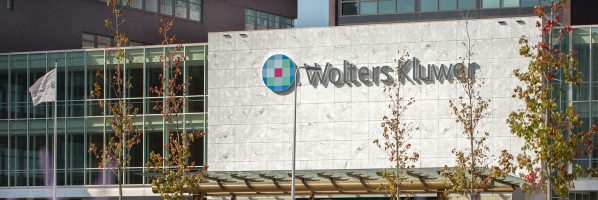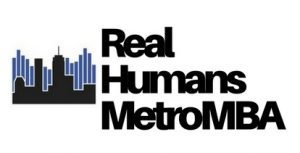MBA Job Destinations: Wolters Kluwer

The average person may not know what international information services firm Wolters Kluwer does, or even how to pronounce it But when it comes to post graduate job placement, every MBA knows (or should know) the Dutch company’s name, and its status as a top MBA recruiter. Continue reading…
HBS Reviews Elon Musk’s Compensation Plan, and More – Boston News

In case you missed it, let’s explore some of the most interesting stories that have emerged from Boston business schools this week.
Elon Musk’s Unusual Compensation Plan Isn’t Really About Compensation at All – Harvard Business Review
Harvard Business School faculty member George Serafeim, the Jakurski Family associate professor of business administration, recently published his insight into the compensation package Tesla shareholders awarded CEO Elon Musk this year—“likely the largest compensation package ever awarded to a CEO.”
Serafeim argues that the design of the compensation plan and its announcement were about “signaling a credible commitment to Tesla’s purpose: to become a clean energy giant that helps address climate change by transforming mobility. To get there, Musk needs not only the normal sort of investor confidence, but also for investors to buy into his radical vision for the company.”
Serafeim further explains:
“Musk’s compensation plan, with its ambitious targets for market capitalization, focuses the mind on exactly this vision. For Tesla to reach a $650 billion valuation by 2028, the market will have to shift dramatically, with electric vehicles becoming the overwhelming percentage of all new sales. That would boost Tesla revenues from both vehicles and batteries. Such a future would also likely require that Tesla’s autonomous pilot technology becomes state-of-the-art, allowing it to be used safely and widely in Tesla vehicles but also potentially through licensing by other players.”
You can read more about Serafeim’s insight here.
Finance by Day, Pro Soccer by Night – Carroll School of Management News
The Boston College Carroll SOM recently profiled Issey Maholo ’07, a polymath who spends his days as VP of prime brokerage for J.P. Morgan and his nights as goalie for the Hong Kong Football Club.
Maholo, a native of Tokyo born to a Congolese father and Japanese mother, writes, “There will be plenty of excuses you can make in life as to why you should stop doing what you love to do.” He also notes the parallels between his vocation and avocation, particularly when it comes to teamwork:
“One person can shape a game, but usually not a whole season. It’s the same in finance—someone can bring in a big mandate, but you all have to pull together to become the top bank in Asia.”
You can read more about Maholo here.
The Quest for Error-Free Care – Sawyer Business School Blog
The Suffolk University Sawyer Business School recently hosted a panel discussion sponsored by the Suffolk University Chapter of the Institute for Healthcare Improvement (IHI), which touched upon “trends in the industry, patient safety, how the patient experience has improved over the decades, job-hunting advice, and many other subjects.”
The talk featured three Boston health care leaders: Lahey Hospital and Medical Center Chief Quality and Safety Officer Dr. Judith Melin; Mass General Hospital Associate chief quality & safety officer Mary Cramer; and Professor Elizabeth Turner, a nurse-attorney whose practice focuses on health care law.
Professor Mona Al-Amin, faculty adviser to the IHI group, writes, “The importance of this event was that students learned about quality improvement in healthcare organizations. They also got to ask questions about the field. And they got to learn about career choices and what skills they might need.”
You can read all the takeaways from the discussion here.
What are the Best Healthcare MBA Degrees in Toronto?

The Toronto metro is not only home to a number of the finest business schools in Canada—it is is one of the top cities in North America for healthcare and human health sciences. According to the City of Toronto, the city’s life sciences sector employs nearly 30,000 professional and contributes more than $2 billion to the local economy. In a word, Toronto healthcare is huge.
What are the Best Healthcare MBAs You Can Find in New York City?

New York City is not only home to a number of the finest business schools in the world—it’s also where you can find some of the best healthcare programs this country has to offer. Continue reading…
Real Humans of the Rady School of Management MBA Program

In less than 20 years since opening in 2001, the University of California San Diego Rady School of Management has quickly cemented itself as one of the best up-and-coming business schools in California. Regarded as one of the 100 best business schools in the world by The Economist, with an impeccably strong and celebrated faculty, Rady has nurtured an increasingly excelling MBA class.

The Rady School of Business Class of 2019 MBA sported a gaudy median GMAT score of 670 and an undergraduate GPA of 3.21. These students also joined the program having amassed more than five years of professional work experience, on average, with numerous prospective graduates coming from well-known companies like: Intel Corporation, Loreal, Princeton University, and Scripps Health. As well, about 16 percent of students within the class joined the program having already earned either their Ph.D. or an additional Master’s degree.
Considering San Diego’s strong connection to the United States Armed Forces, it isn’t surprising to hear that many students in the Class of 2019 come directly from the U.S. Army, Navy, and Army. The Rady School of Management, along with many of UC San Diego’s additional graduate schools, show a concerted effort to bring in those with military experience, offering MBA fee waivers, as well help from an extensive network of school alumni that continue to work with the U.S. military.
But the Class of 2019, and the Rady School of Management itself, goes much deeper. With a budding entrepreneurial culture, students are coming in from all over the world to help build groundbreaking startup companies. In fact, more than 40 percent of the MBA Class of 2019 comes from outside the United States, utilizing Rady’s numerous startup resources, like the StartR Accelerator program, mystartupXX Accelerator, and the Rady Venture Club, among others.
To get a greater understanding of what it means to be a Rady MBA, and how the school continues to help develop a rich entrepreneurial foundation, we spoke with several current students, including a consultant from Bangalore, a software developer from Kolkata, and a local equine veterinarian hoping to build a “biotech and medical industry consulting firm in for both the human and veterinary market.”
Read on to see what’s in store for these students at Rady and what life after an MBA may look like.
Northwestern Explores Healthcare Costs, and More – Chicago News

Let’s explore some of the most interesting stories that have emerged from Chicago business schools this week.
When Healthcare Providers Consolidate, Medical Bills Rise – Kellogg Insight
Despite the claim that hospitals make in terms of cost savings when, say, a GP is acquired by a local hospital, Northwestern Kellogg professor of strategy David Dranove, along with research assistant professor strategy Christopher Ody and Bates White Economics Consulting’s Cory Capps sought to research the real financial impacts of integration for instance among healthcare providers.
The researchers found that from 2007 to 2013, almost 10 percent of physician practices in the data were acquired by a hospital. Once acquired, prices for the services provided by those physicians rose an average of 14 percent. “The rising prices are partly due to ‘mechanical elements’ of how prices are set in contracts,” with insurers, Dranove says. For example, insurers often write contracts that allow hospitals to bill more for a procedure than a physician group can. Additionally, Dranove says, “when a hospital owns a physician practice, they gain market power.”
You can learn more about the trio’s research here.
Economics Professor Studies Monetary History of Ecuador – Loyola Quinlan School of Business Blog
Julián P. Díaz, Ph.D., Quinlan School of Business assistant professor of economics, recently presented research on the financial history of Ecuador between 1950-2015 as part of a conference that explored the macroeconomic crises of the 11 largest Latin American countries.

“The Latin American Debt Crisis of the 1980s made this strategy unsustainable since international creditors stopped lending to Ecuador, and the rest of the region. This should have prompted a significant fiscal adjustment, which, however, never really took place in a significant manner. Instead, the government resorted to seigniorage—printing money—to finance a large portion of its spending. This in turn led to a lengthy period—almost three decades— of persistently high inflation, which averaged nearly 30 percent between 1972 and 1999.” – Julián P. Díaz, Ph.D.
“Businesses operate in environments influenced by governments’ actions,” he notes. “Identifying fiscal and monetary policies that lead to undesirable outcomes and hurt the ability of businesses to thrive is of critical importance. For our students, many of the tools used to analyze the countries’ performances in this project are taught in a number of economics classes at Quinlan. This highlights the fact that the topics we cover in class are not just theoretical exercises. They are being used to understand why some countries fail, and what can be done so that such costly experiences are not repeated in the future.
You can check out the full interview with professor Diaz here.
Investing for Social Impact – Chicago Booth Magazine
The University of Chicago Booth School of Business’ Rustandy Center for Social Sector Innovation has become a frontline for investing “with the intention to generate social and environmental impact alongside a financial return” or what has become more commonly known as “impact investing.” Impact investors are a growing segment of managers, consultants, and professionals who seek to blend their financial acumen with “their commitment to improving people’s lives and the health of the planet.”
“Impact investing is just increasing at a faster and faster pace,” Rogers said. “I think it’s a very promising career, and I think the industry will continue to grow as millennials become more socially conscious about how they’re investing their money.”
Read more about the future of impact investing here.
